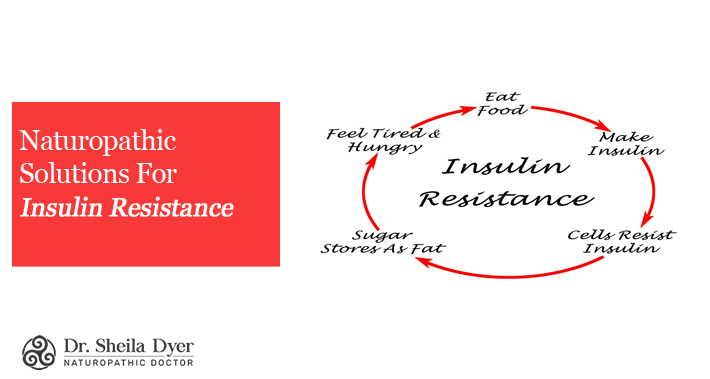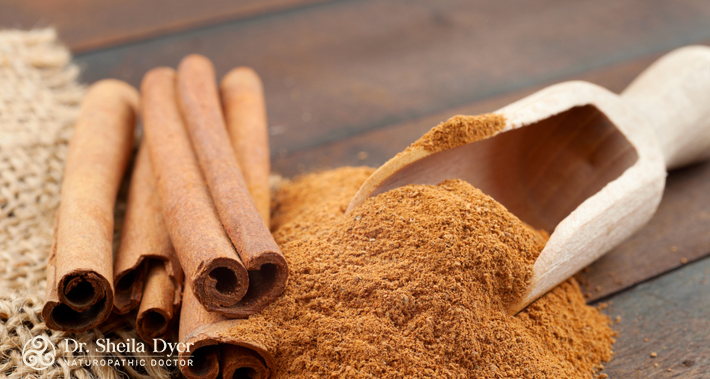Your body’s hormones are incredibly important in keeping your body functioning properly.
They regulate processes in all areas of your body and help keep things running smoothly.
Hormonal imbalances can lead to any number of issues, including low energy levels, irritability, painful menstrual cycles, and increased levels of anxiety and depression, to name a few.
Luckily, there is help, and as a naturopathic doctor for hormonal imbalance I want to help you better understand issues which could be related to your hormones.
Today we are going to take a closer look at insulin, issues related specifically to insulin resistance, and ways in which a naturopathic doctor in Toronto might help.
Keep reading and also watch the video below to learn more about insulin resistance.
What Is Insulin?
Insulin is a hormone which helps to regulate the nutrients in your blood.
Although it’s primarily associated with regulation of blood sugar levels it also has an impact on the metabolism of proteins and fat.
When your blood sugar levels increase due to the food you eat, cells in the pancreas are triggered to release insulin into your bloodstream, leading to reduced levels of blood sugar.
nutrition counseling services in Toronto can help you better understand how this works.
What Is Insulin Resistance?
Insulin resistance is a condition which can develop when your cells stop reacting normally to insulin released by the pancreas.
This can lead to high levels of both insulin and sugar in the blood, and can result in damage to the pancreas.
As blood sugar levels rise, it can also lead to type 2 diabetes.
Insulin resistance is incredibly common and affects approximately nine percent of people across the globe.
What Causes Insulin Resistance?
Some of the factors which can lead to insulin resistance include:
- High levels of fatty acids in your blood
- Disruptions to your gut microbiome
- A diet high in sugar
- Inactive lifestyle
- Increased oxidative stress and inflammation
Symptoms Of Insulin Resistance
The symptoms of insulin resistance are similar to those of diabetes, and include:
- High blood sugar levels
- Chronic fatigue
- Extreme hunger and thirst
- Having infections at a higher rate than would be expected
- Being hungry after eating
- Urinating frequently
- Feeling a tingling sensation in the hands and feet
Naturopathic Treatments For Insulin Resistance
If you are worried you might be at risk for developing insulin resistance, or have already been diagnosed with it, there are a number of natural steps you can take to help.
The good news is that naturopathic treatments can help you manage insulin resistance before you end up needing naturopathic treatments for type 2 diabetes.
Let’s take a look at some of the naturopathic ways to help manage insulin resistance.
1. Eat The Rainbow!
No, we aren’t talking about eating more Skittles here.
Adding more colourful fruits and vegetables to your diet can help in a couple of ways.
Fruits and vegetables are full of plant based antioxidants, which can help reduce inflammation.
In addition, these plant compounds can help increase insulin sensitivity.
Due to the fact that fruit can be high in sugar, though, it’s important to watch how much you’re eating in any one sitting.
However, fruit based sugars don’t carry the same harm that added sugars do because of the fibre you get along with them.
Speaking of which…
2. Eat More Fibre
You’ve probably heard this one before, but we’re going to say it again – eat your fibre.
There are two main types of fibre – soluble and insoluble.
Soluble fibre in particular has been shown to be related to increased insulin sensitivity.
It also helps to manage appetite and lower cholesterol levels.
Additionally, soluble fibre is good for your gut microbiome, and a healthy gut is another factor in increased insulin sensitivity.
If you’re looking to add more soluble fibre to your diet, foods to consider include apples, oats, flaxseed, and legumes.
3. Include Turmeric In Your Cooking
Turmeric is a spice which includes the active ingredient curcumin.
Curcumin is a compound which helps to reduce blood sugar and the amounts of fatty acids found in the bloodstream.
It also has anti inflammatory properties and is a strong antioxidant.
Turmeric can also work as a natural solution for heart disease by lowering your risk, and it’s a great natural treatment for rheumatoid arthritis as well.
4. Include Fenugreek In Your Cooking
Fenugreek is a small plant which has been used in traditional Chinese medicine – the same medicinal tradition where acupuncture treatments come from – for thousands of years to treat a variety of conditions.
One of these uses is to help manage blood sugar.
In one study participants with diabetes were given fenugreek, and showed a 13.4 percent reduction in blood sugar levels after four hours.
Fenugreek seeds can be eaten whole, used in baking, or taken as an extract.
5. Include Cinnamon In Your Cooking
Not only is cinnamon a great way to spice up your baking, it’s also known for its effects on blood sugar levels and improving insulin sensitivity.
It’s been found eating anywhere from one to six grams of cinnamon each day can help reduce blood sugar levels both in the short term and over a longer period of time.
Cinnamon may even contain compounds that can imitate insulin and affect cells directly.
6. Improve Your Sleep Hygiene
Getting a good night’s sleep is possibly one of the best things you can do for your health.
This doesn’t just mean sleeping for the right length of time, but also ensuring the sleep you do get is restful and restorative – sleeping for ten hours straight won’t be much good if you wake up every hour throughout the night.
What does sleep deprivation do? It can cause many issues, including increasing your risk of developing infections, heart disease, and insulin resistance.
Additionally, when you’re not well rested, it often means you’re more likely to skip exercise and make poor food choices, which also lead to lower insulin sensitivity.
Improving your sleep can go a long way to helping reverse these effects.
For more on this, check out my Ultimate Guide To Optimal Sleep.
Book Your Appointment With Dr. Sheila Dyer, ND, Today
Are you worried about your blood sugar levels?
Has living through a pandemic for the past two years meant you find yourself snacking more than usual on unhealthy treats as a coping mechanism?
Perhaps you recognize you don’t always have the best habits when it comes to diet and exercise, and you’re ready to make a change.
Or maybe you have a family history of diabetes and want to ensure you’re doing everything you can to ensure it doesn’t affect you as well.
I’m Dr. Sheila Dyer ND, a naturopathic doctor in Toronto and I can help.
I’ll work with you to make a plan to address any issues you’re concerned about, and help you take your health back into your own hands.
Contact me today for more information or to set up a consultation.
If you have questions about naturopathic medicine, or would like to start with your first consultation, contact me, and let’s book an appointment.
Dr. Sheila Dyer, ND1080 Dovercourt Rd,
Toronto, ON M6H 2X8
(416) 554-5135
► https://g.page/DrSheilaDyerNd
Dr. Sheila Dyer is a Naturopathic Doctor and a practicing registered nurse offering holistic healthcare with a scientific focus

